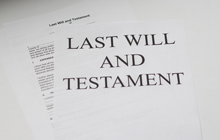Canadian income tax - proposed First Home Savings Account

David J Rotfleisch on the Liberals' proposed tax favoured savings account
Overview: Proposed First Home Savings Account
 |
David J Rotfleisch, CPA, JD is the founding tax lawyer of Taxpage.com and Rotfleisch & Samulovitch P.C., a Toronto-based boutique tax law corporate law firm. |
During the 2021 federal election, the Liberal Party of Canada proposed introducing a new form of tax favoured account: the First Home Savings Account (FHSA). As the name suggests, this account is intended to provide tax incentives for Canadians saving for a down payment on their first home. As the Liberals have formed a minority government for the 44th parliament, it is plausible that the FHSA will be introduced into Canadian tax law. As such, tax savvy Canadians should take time to consider how the First Home Savings Account could fit into their tax and financial planning. Note that if and when the FHSA is actually introduced, it may take a different form that it was described in this article.
Basic Features
The First Home Savings Account is intended to combine features of the Registered Retirement Savings Plan (RRSP) and the Tax Free Savings Account (TFSA). As with an RRSP, when a Canadian individual makes a contribution to the FHSA, he or she will be entitled to a corresponding deduction from his or her income for that year. Income earned in the First Home Savings Account will not be taxed. Unlike a Registered Retirement Savings Plan, it is possible for the holder of the First Home Savings Account to withdraw funds without a corresponding income inclusion so long as those funds are applied towards the purchase of the holder's first home. This means that contributions that are eventually withdrawn and used for the purchase of the holder's first home will effectively receive the tax benefits typically associated with both an RRSP (a deduction at contribution time) and a TFSA (tax free investment income).
See also - Tax Shelter Information
Only Canadian individuals under the age of 40 will be able to use a First Home Savings Account. If the funds in the First Home Savings Account are not used by the time the holder reaches the age of 40, those funds will convert into Registered Retirement Savings Plan funds.
The existing descriptions of the FHSA imply that individuals eligible will have a lifetime threshold of $40,000 for which the tax-free withdrawal treatment applies. To date, there has been no indication that this threshold is contingent on income (like RRSP contribution room) or builds up on an annual basis (like TFSA contribution room).
Features to be Determined
Many aspects of how the First Home Savings Account would operate are unclear. One important aspect that has yet to be specified is how contributions to a FHSA will be limited. Since funds in a First Home Savings Account are supposed to convert into funds held by a Registered Retirement Savings Plan when the holder turns 40, one possibility is that contributions the FHSA will share the same contribution limit for RRSPs.
If the First Home Savings Account does not share a contribution limit with the RRSP another possibility is that the FHSA will either effectively allow eligible individuals to increase their RRSP limit when they turn 40, or there will be adverse tax consequences of some kind for individuals with a FHSA which exceeds their Registered Retirement Savings Plan contribution room when the plan converts to an RRSP.
Another important aspect of the proposed First Home Savings Account that remains undetermined is the scope of assets that will be eligible to be held in a FHSA. Registered Retirement Savings Plans and the Tax Free Savings Account allow for a wide variety of securities to be held in them, with some restrictions to prevent abuse and with notable exceptions such as direct holdings of cryptocurrency. It has not yet been specified whether a similarly wide scope of eligible investments will be available for First Home Savings Accounts.
That there is a deduction for contributing to a First Home Savings Account means that the tax saved from the deduction depends on the holder of the FHSA's marginal tax rate in the year the deduction is available. It is likely that maximum contributions to the First Home Savings Account will be limited in some form. This means that it can be advantageous to adjust annual contributions to the FHSA to maximize tax savings.
Related TaxPage Articles:
Donation Tax Shelter, Roher v. the Queen
TFSA Tax: Canadian Tax Lawyer Guidance
Biden's Financial-Reporting Obligations for Cryptocurrency Exchanges
Can the CRA Pursue the Beneficiary of Your Life Insurance Under Section 160 of the Income Tax Act? A Canadian Tax Lawyer's Analysis
David J Rotfleisch, CPA, JD is the founding tax lawyer of Taxpage.com and Rotfleisch & Samulovitch P.C., a Toronto-based boutique tax law corporate law firm and is a Certified Specialist in Taxation Law who has completed the CICA in-depth tax planning course. He appears regularly in print, radio and TV and blogs extensively.
With over 30 years of experience as both a lawyer and chartered professional accountant, he has helped start-up businesses, cryptocurrency traders, resident and non-resident business owners and corporations with their tax planning, with will and estate planning, voluntary disclosures and tax dispute resolution including tax audit representation and tax litigation.
Visit www.Taxpage.com and email David at david@taxpage.com. Read the original version of this article on Taxpage.com. Image by Nattanan Kanchanaprat from Pixabay.










(0) Comments